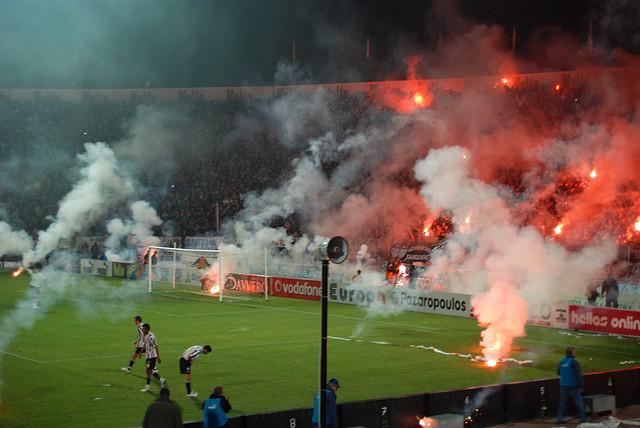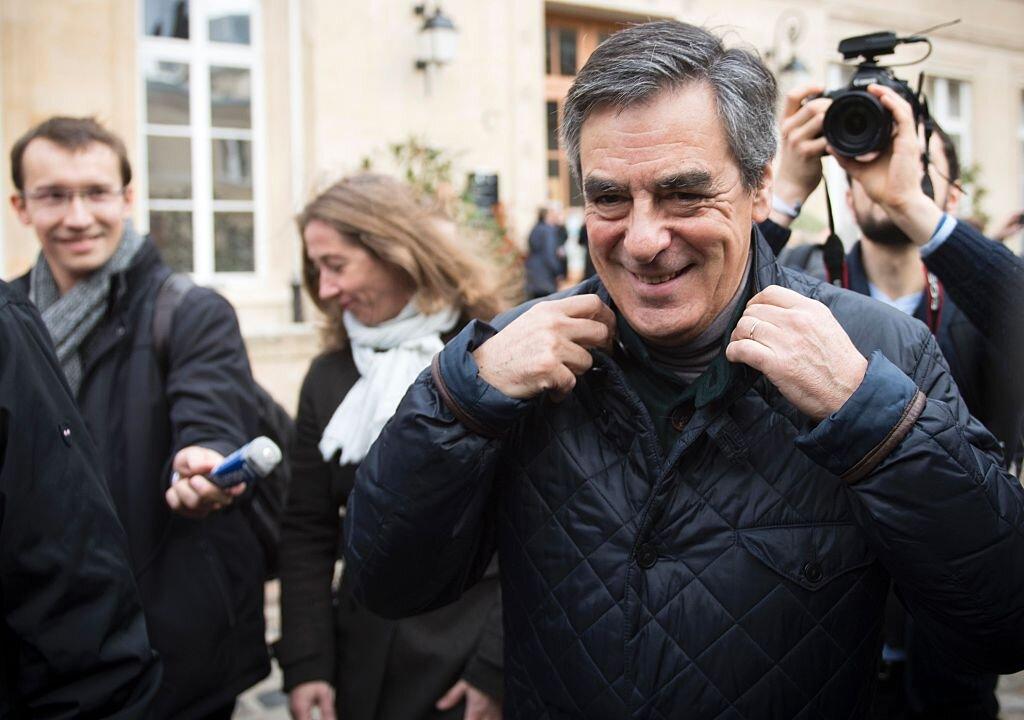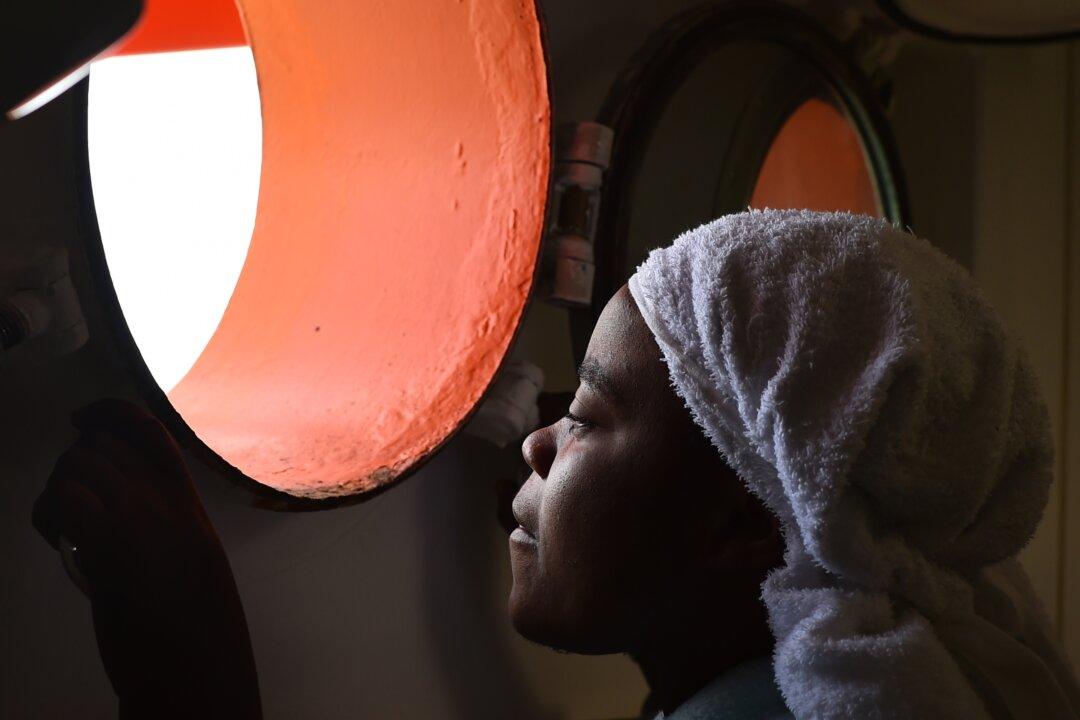The suspension of the Greek Super League along with the matches of other team sports on September 29, following the death of a football fan after being crushed in violent clashes during a third division football match, comes as another blow to the troubled country that just can’t seem to get a break. Violence in Greek football has been a painful reality for the past three decades, but nowhere has it been more present than in the past years that have been marked by intense social hardship. With the economy in the doldrums, football fanatics and the jobless youth have taken to the fields to voice their misery, oftentimes with tragic outcomes. While the government in Greece has continuously denounced such practices on its football pitches and vowed to put an end to it, the mayhem continues undeterred, as arrests are practically non-existent.
The Koriopolis affair
Taking a trip down memory lane, solving the problem of angry football mobs is not the only promise the Greek government has failed to keep. Politicians sitting safely in their private chambers have consistently declared their will and dedication to eradicating the endemic corruption infesting the Greek Super League, but unsurprisingly failed to make much progress in this regard either. In the wake of the Koriopolis match fixing scandal in Greece in 2011, the Deputy Culture Minister Giorgos Nikitiadis described the incident as “the darkest page in the history of Greek football” and in typical Greek politician fashion, promised that the criminal investigation to clean up the game would go “as deep and as high as necessary”. Lo and behold, the determination soon fizzled out, as three years on the case is far from being settled.
The headline grabbing scandal involves telephone recordings of powerful club owners, public officials, referees, police and team players, all working together to fix matches to benefit their own material interests. One of the most prominent suspects in the case is Evangelos Marinakis, owner of Olympiacos FC, a former Super League President and former vice President of the Hellenic Football Federation. Marinakis, who is also a billionaire shipping magnate through his ownership of Capital Product Partners LP, has consistently claimed that the “allegations have nothing to do with me [and] there is not a strand of evidence against me”. While the possibility of politically motivated trials cannot be ruled out in some European countries, Marinakis is not at his first run-in with controversy and accusations of influencing the outcome of football matches.
In May 2013, the shipping magnate was in the spotlight during the football final between Olympiacos and Asteras Tripolis, in which Olympiacos secured a 3-1 victory. The referee, who was criticized for favoring Olympiacos, later admitted that Marinakis, in breach of regulations, had entered the referees’ locker room at half time. While this fact certainly raises some eyebrows and points to some shady dealings between the club owner and referees, Olympiacos’s official statement was that Marinakis entered the locker room to wish match officials a friendly “good luck”. He was cleared of all charges by a Greek court.
For the moment, the Koriopolis investigation has been reopened. While 83 people associated with match-fixing and money laundering were arrested and/or detained back in 2011, nevertheless very little happened in terms of exacting punishment on the people who were identified as suspects in the scandal.
Football Federation – failure from the top
According to Aris Asvestas, a reporter for Contra.gr and sports newspaper Ora ton sport (Time of Sports), who has been vocal about the extremely corrupt state of Greek football, the Hellenic Football Federation gives the impression that they wish to conceal evidence and “throw the dust under the carpet”. This comes as no surprise considering that some members of the HFF are suspects in the recently reopened match fixing scandal.
The Federation is in charge of appointing referees for the matches, and the 2011 telephone recordings seem to show Marinakis trying to secure favorable referees to his games, by using the position of the President of the Federation, Georgios Sarris, who he allegedly helped appoint to the position.
In effect, it appears that the Hellenic Football Federation, rather than cleaning up the game through harsh punishments, expulsions and fines, is entertaining a culture of crime in Greek football.
Round two
The investigation into the Koriopolis scandal has resumed again this year under the charge off deputy sports prosecutor Aristidis Koreas, who has already begun to call suspects to testify in court. While the new initiative should be welcomed as the latest attempt to wipe out corrupt practices in Greek football, it may very well be a long and gruelling process. It is now up to Koreas, after hearing all the testimonies, to decide whether to prosecute the suspected individuals in the case. Looking at past examples, the Greek judicial system is not renowned for its speed, so hard results may take years to come about.
While there are some like Asvestas who are hopeful that this case may truly rock the foundations of Greek football corruption under the leadership of Koreas who is making “a huge effort [and who] has the will” to see the investigation through, others are unconvinced. According to a person familiar with the ins and outs of the Greek football industry, people know too well that when powerful individuals are involved, the government may wish to avoid the ugly and public scenario of prosecutions. Politicians may choose to “replace the prosecutor with someone else, whose ”views“ are closer to those of the politicians.” Regardless, this is the first time the Greek judicial system has embarked on such an investigation, indicating hope for the future of Greek football.
The outcome of the this ongoing Koriopolis case will have wide ranging implications, and will determine whether Greece, now sluggishly making its way out from its economic conundrum, is truly willing to fight the endemic corruption running rampant both in its government and society. As editor in chief of newspaper Metrosport, Dimitris Dragogias, has stated, “corruption in Greek football is proportionate to corruption in Greek politics”. Unless public officials finally muster up the strength to battle with it, Greek football will keep kicking the ball down the field.





